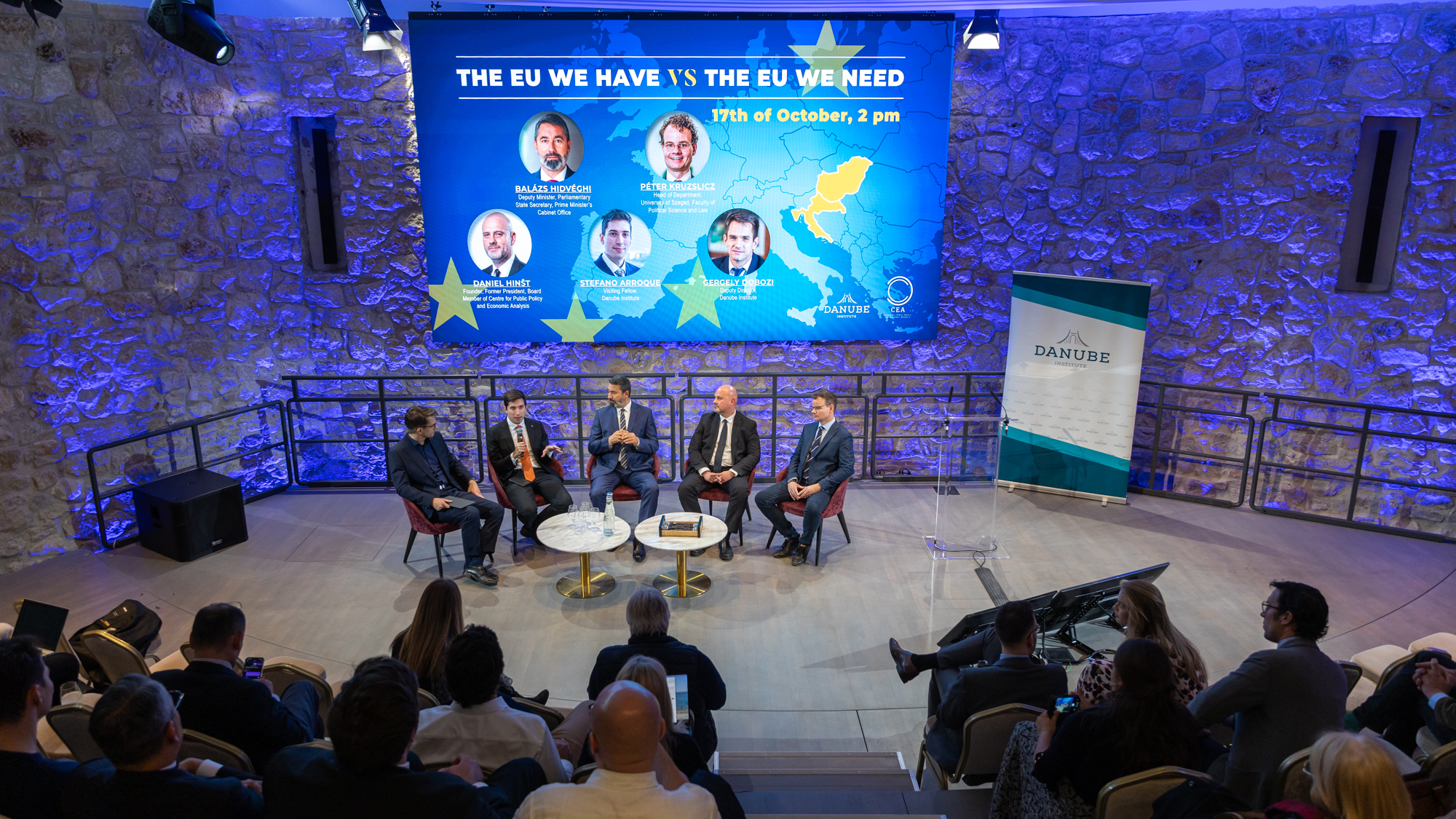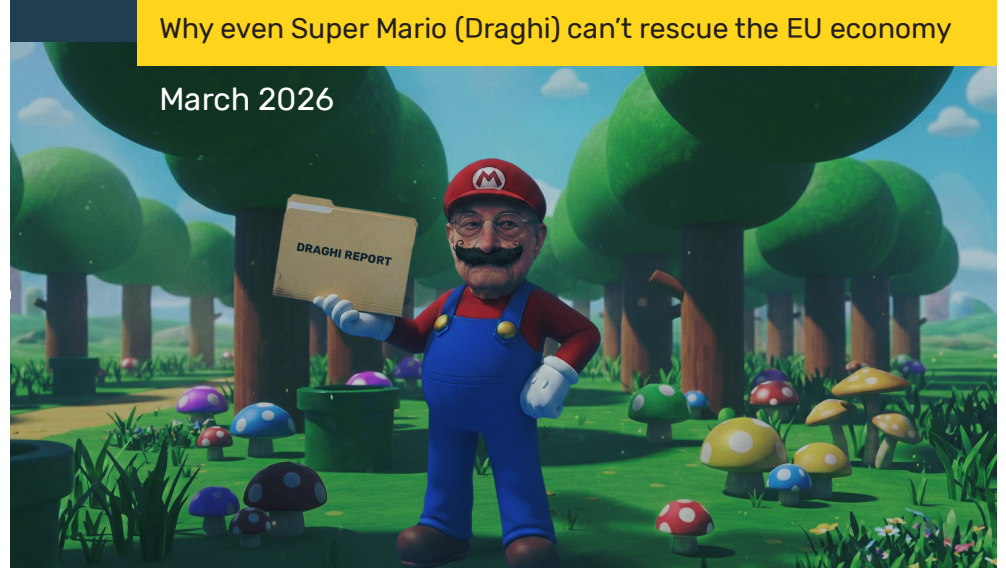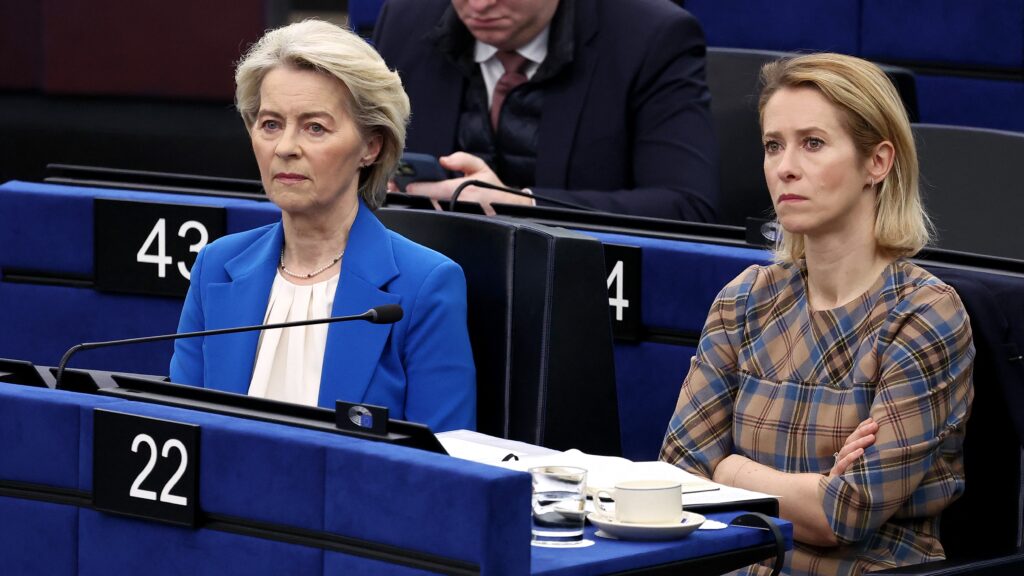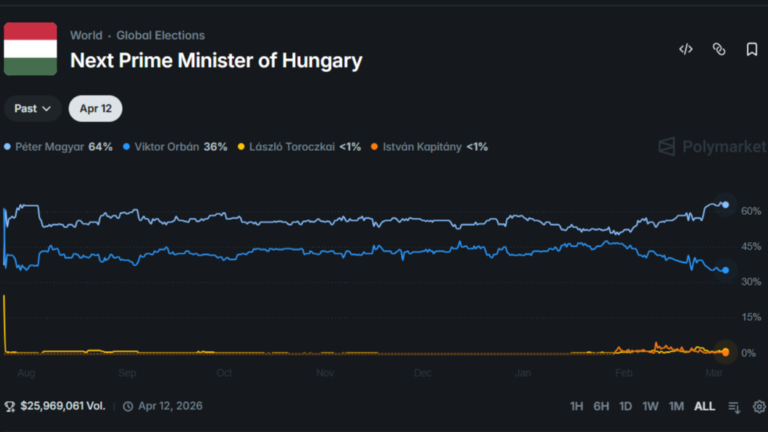The Danube Institute hosted a high-level discussion in Budapest last Friday under the title ‘The EU We Have vs the EU We Need’, where Hungarian Deputy Minister and Parliamentary State Secretary Balázs Hidvéghi warned that the European Union is facing a political and institutional crisis caused by overcentralization in Brussels and the erosion of national sovereignty.
The event, moderated by Deputy Director of the Danube Institute Gergely Dobozi, featured a keynote address by Hidvéghi, followed by a panel discussion with Stefano Arroque, Visiting Fellow at the Danube Institute; Hidvéghi himself as a panellist; Daniel Hinšt, Founder and Board Member of the Centre for Public Policy and Economic Analysis in Zagreb; and Péter Kruzslicz, Head of Department at the University of Szeged’s Faculty of Political Science and Law.
Centralization through Crises
In his keynote, Hidvéghi outlined how the original European project—once rooted in voluntary cooperation among sovereign nation-states—has evolved into an increasingly political and centralized system. What began as an economic partnership designed to prevent future wars, he argued, has turned into a structure in which institutions in Brussels seek ever-greater authority over member states.
‘The European Union was founded as a cooperation of sovereign nations,’ he said, ‘but now sovereignty is under attack. The Commission acts as a political body rather than a technical one.’
Hidvéghi listed key areas where he believes Brussels has gone too far: identity and migration, where illegal mass migration is presented as a manageable phenomenon rather than a threat; family policy and the rise of what he called ‘omnipresent gender ideology’; the marginalization of Europe’s Christian roots; and the erosion of security and economic competitiveness through ideologically driven policies such as the Green Deal.
He also criticized the EU’s joint-debt mechanism introduced during the COVID-19 pandemic, arguing that shared borrowing has led to political blackmail under the so-called rule-of-law conditionality, which he said is being used to withhold Hungary’s recovery funds for political reasons.
Hidvéghi concluded that Europe now faces a dangerous geopolitical moment and praised Hungarian Prime Minister Viktor Orbán’s mediation efforts regarding the war in Ukraine, emphasizing the importance of the upcoming peace talks in Budapest between US President Donald Trump and Russian President Vladimir Putin.
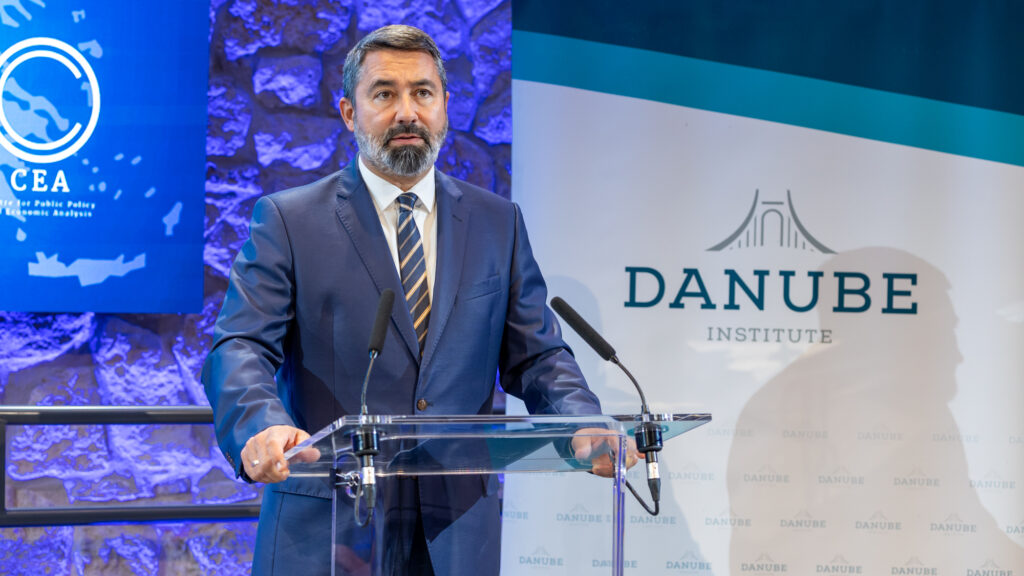
Federalist Mindset
Opening the panel discussion, moderator Gergely Dobozi pointed to the most recent institutional conflict: the European Parliament suing the European Commission before the European Court of Justice for allegedly failing to punish Hungary under the rule-of-law mechanism, involving €10.2 billion in funds.
Responding first, Stefano Arroque argued that the EU’s politicization is not accidental but a structural feature of its design. Quoting Walter Hallstein, the first president of the European Commission, Arroque noted that from the very beginning, the project aimed for political unification.
‘The politicization of the EU is not an accident—it happened by design,’ Arroque said. ‘The Commission and the Parliament have always sought to move Europe toward a supranational model, while the Court has often reinforced this tendency through precedent.’
‘The EU’s politicization is not accidental but a structural feature of its design’
Arroque described the struggle within the EU as one between two competing visions: a federalist model dominated by Brussels and a confederal model of cooperation among sovereign states. The phrase ‘ever closer union’, he said, symbolizes this unresolved tension. ‘How close is too close? By leaving the question open, the system assumes that there is no such thing as too close.’ He warned that unchecked integration risks undermining the democratic legitimacy of the European project.
As a former Member of the European Parliament, Hidvéghi reflected on how the body functions in practice. While formally elected by citizens, he said, it lacks key powers typical of national parliaments—such as legislative initiative—and has become inward-looking and disconnected from national electorates.
‘Many MEPs enter a kind of Brussels bubble once elected,’ he remarked. ‘They stop representing their voters and begin thinking in terms of an imagined European sphere.’
Hidvéghi said that a dominant federalist mindset in Brussels discourages dissent, reinforced by a sympathetic media environment. Yet he expressed hope in the growing strength of sovereigntist and patriotic parties, highlighting the formation of the Patriots for Europe alliance as a sign that ‘a new balance’ may emerge in EU politics.
A Pro-Reform Coalition
Croatian economist Daniel Hinšt shared a similar diagnosis but emphasized that reform—not withdrawal—is the solution. ‘It is always good to support the European Union,’ he said. ‘The question is what kind of Union we want.’
Hinšt argued that the EU suffers from a distorted form of federalism in which Brussels accumulates powers without the checks typical of classical federal systems. He called for a pro-reform, conservative coalition that defends limited government and restores the principle of subsidiarity, allowing the EU to act only where strictly necessary.
‘Patriotism is not extremism,’ he stressed, warning against the left-wing tendency to equate national conservatism with radicalism. He also criticized the current ‘grand coalition’ of centrist parties—Christian Democrats, liberals, socialists, and Greens—for institutionalizing compromise policies that expand EU competences.
Hinšt said that while Hungary currently faces the most visible clashes with Brussels, similar tensions exist elsewhere, particularly on issues of migration and cultural policy. He warned that many member states fear taking a stand, even when they share Hungary’s concerns, due to political pressure and double standards from the Commission.

Nothing Is Quite What It Seems
From a legal perspective, Professor Péter Kruzslicz argued that the EU’s institutional framework lacks coherence. Designed primarily for efficiency rather than constitutional clarity, it has produced a system where none of the institutions fully resemble their nominal counterparts.
‘The Parliament is not a real parliament, the Commission is not a government, and the Council is not a classic intergovernmental body,’ he said. ‘Nothing is quite what it seems.’
This structural ambiguity, he argued, explains why institutions frequently exceed their competences. Research shows that many parliamentary resolutions go beyond its legal powers, while the Commission has gradually transformed itself into a political actor. The Court of Justice, for its part, often prioritizes the ‘effectiveness’ of EU law over strict legality, which in practice enables competence expansion.
On the current case between the Parliament and the Commission, Kruzslicz noted that the Court seldom rules against the Commission, making the outcome likely to favour Brussels. Treaty reform, he said, is practically impossible because of the need for unanimous consent among member states, but institutional practices can still evolve from within.
‘Treaty reform…is practically impossible because of the need for unanimous consent among member states, but institutional practices can still evolve from within’
The professor pointed to migration as an example of how EU law often fails in implementation: although most asylum claims are rejected, member states have limited ability to enforce returns, leaving national governments politically exposed yet legally constrained.
In closing remarks, the panellists agreed that the European Union remains a historically successful peace project but warned that its long-term legitimacy depends on respecting national sovereignty and limiting institutional overreach.
Hinšt argued that enlargement—whether to the Western Balkans or Ukraine—should proceed only alongside decision-making reform and respect for unanimity.
The discussion ended with consensus on the need for a Union focused on its core strengths—market integration, competition policy, and cross-border infrastructure—while leaving questions of identity, culture, and family to member states.
Related articles:

